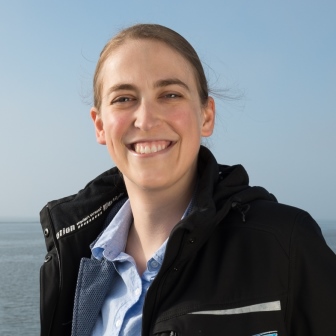Wind Energy 2018 – Review, Outlook and Holiday Greetings
Learn more about the industry developments in 2018 and get WindGuard Insight into the market prospects for 2019.
2018 was a turbulent and interesting year for the wind energy industry. WindGuard Insight sat down with the founding fathers of Deutsche WindGuard Gerhard Gerdes, Knud Rehfeldt and Axel Albers for a cup of Ostfriesentee. We asked them to give us a short summary of 2018 and what they think will be the significant developments in 2019.
Interview with Axel Albers, Gerhard Gerdes and Knud Rehfeldt
WindGuard Insight: Welcome to WindGuard Insight and thank you for taking the time! First of all we would like to know: In your opinion, what were the most significant regulatory changes in Germany we saw in 2018?
Knud Rehfeldt: The 100-days-law, stipulated in the coalition agreement, was finally passed in December 2018 in the form of an energy law package (Energiesammelgesetz). In this law, tenders for additional 4000 MW for onshore wind are scheduled for the years 2019 to 2021. Unfortunately, the originally planned additional tenders for offshore wind did not make it into the law. Because of the delays in legislation in 2018, we experienced a vacuum in the development of new wind energy projects. This led to layoffs and relocations abroad in the German wind industry.

WindGuard Insight: What would you say were the most significant technical developments in 2018?
Axel Albers: We saw further efforts at cost reduction by means of technological advancements in turbine technology and also in the area of offshore infrastructure. Aside from that I would count the realisiation of Wind-PV-Hybrid-Projects and the application of storage technologies in wind farms among the most important developments in 2018. I should also mention the further upscaling of the turbines themselves, and that applies onshore as well as offshore.
WindGuard Insight: WindTime for a little introspection! What would you say were the most important changes for WindGuard in 2018?
Gerhard Gerdes: Well, we expanded our company to two currently very important markets: China and India. We founded Dé Fēng Wèi in China after being more and more active in the market in the last three years. In the next step, we decided to also push into the Indian market and set-up Deutsche WindGuard India. The first steps of this new members of the WindGuard family are very promising and I look forward to the future developments.
Aside from our international expansion, we have also worked very hard on our home base. We are working in a very competitive market environment and have to discuss and adapt our processes and approaches continuously. Therefore we put a lot of effort into streamlining our processes to further improve the efficiency of our services. The driver behind this effort is that we are very well aware that we can only hold our leading market position if we constantly challenge our processes and adapt new ideas and procedures.
Prospects for 2019 – Further Cost Reductions
WindGuard Insight: Let’s take a look into the future! What do you think are the prospects for 2019?

Axel Albers: We will see the advance of PPAs on an international level as wind energy becomes more competitive. In terms of technological developments, the focus will remain on cost reduction and energy storage. I suspect that international markets will gain in importance for our services. At the same time the cost pressure in the industry will grow and force everyone to focus on improving efficiency.
Gerhard Gerdes: We will expand our foreign subsidies by increasing staff and improving our presence on the respective home markets. With this approach we expect to further establish our services and increase our market share. We will also continue to streamline our established processes as mentioned before.
Knud Rehfeldt: We hope that the political decision for additional tenders in Germany sends a signal that the use of wind power in Germany will continue. This will hopefully give companies the confidence to invest in new wind energy projects. The recent discussions at the climate change conference in Katowice and also the debate on the reduction of CO2 emissions in the traffic industry by implementing electronic mobility shows: the expansion of renewable energies is of crucial importance on a national and international level. For example: If we introduce E-mobility, but built new coal plants to meet the subsequently increasing electricity demand, we will actively sabotage reaching our climate change objectives.

WindGuard Insight: Thank you very much for you assessments. One more thing before you go: As it is almost Christmas, what are your favorite holiday traditions?
Axel Albers: Riding out the Christmas storms on my surf board and eating lots of pies. True to the motto: Eat. Surf. Sleep.
Knud Rehfeldt: I look forward to spending extra quality time with my family.
Gerhardd Gerdes: For me it’s making music with my family and friends and enjoying a delicious Christmas dinner.
WindGuard Insight wishes everyone Happy Holidays and a great start to 2019!
Cornelia von Zengen was Head of PR and Marketing at WindGuard Group for many years. She loves writing and the fresh sea breeze on her face on the Frisian coast. As her professional journey has made her sail to new shores in the meantime, we would like to take this opportunity to thank her once again for her contribution to the success of WindGuard Insight.
Co Authors :





